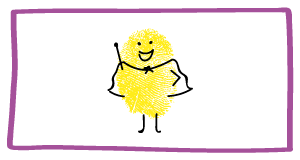Dubai pupils are happy but nearly a quarter do not feel safe over bullying, study shows
The first data to come out of the Dubai Student Wellbeing Census show that while a majority of children reported being happy, nearly one in four said they didn’t feel safe in the emirate’s private schools.
Girls felt safer than boys, and boys expressed more optimism about their future than girls, according to the early findings of the census released on Saturday by the Knowledge and Human Development Authority (KHDA).
KHDA, the government private school regulator in Dubai, commissioned the Government of South Australia’s Department of Education and Child Development to conduct the census as part of a five-year student wellbeing study. The South Australian government, who first designed and administered the annual census for its own pupils four years ago, adapted the survey for Dubai’s unique Emirati and multinational populations, and translated it to Arabic.
“It covers engagement, physical health and wellbeing, socio-emotional aspects of schooling -- so children’s attitudes to their own education -- perseverance, how they feel about their school, and bullying,” said David Engelhardt, director of business intelligence for the Government of South Australia’s department for education and child development. “We break bullying down by physical bullying, verbal bullying, cyberbullying, we can see right in detail underneath what’s happening in schools.”
Each of the 168 private schools in Dubai that participated in the census will receive a report this week detailing school-specific results and a unique pupil wellbeing score. An in-depth Dubai report is expected to be released by the KHDA in May.
The annual census is meant to help schools improve their pupils’ wellbeing as Dubai strives to become one of the five happiest cities in the world by 2021.
“At KHDA we have made a commitment to make wellbeing an essential part of our conversations with schools, with teachers, with parents and most importantly with the students themselves,” said Dr Abdulla Al Karam, director general of KHDA.
The data, which were gathered in an online survey of 64,686 private school pupils in Dubai from grades six to nine, was conducted November and December last year.
Highlights from the census findings showed that, overall, 84 per cent of pupils said they were happy at school, 84 per cent were satisfied with life and 92 per cent felt confident about their schoolwork.
The percent of happy pupils declined slightly with each increasing grade level. Eighty-eight per cent of year six pupils reported high or medium levels of happiness, compared with 86 per cent of year seven pupils, 82 per cent of year eight and 78 per cent of year nines.
Eighty-seven per cent of pupils reported high or medium levels of optimism about their future, and 63 per cent of boys said they were “very optimistic,” compared to 60 per cent of girls.
Eight-four per cent of all pupils surveyed said they were satisfied with life and 92 per cent felt confident about their schoolwork.
When it came to school safety, 77 per cent said they felt medium or high levels of safety at their school. Seventy-four per cent of boys reported feeling “very safe” at school, compared with 81 per cent of girls.
“The gender associations stand out starkly in the data, there is a difference between boys and girls wellbeing across cultures,” said Mr Engelhardt. “Many children aren’t bullied at all, a large proportion of children only have a negative experience about once a year, but a very small percent of children are frequently bullied. We need to think a bit more about what that means and how to respond.”
Children also reported feeling less “connected” with adults at school, than with adults at home. Fifty-seven per cent of all pupils said they felt “highly connected” to adults at school, compared to 77 per cent who felt that way about adults at home. The higher the grade level the pupil was in, the less connected he or she felt with all adults.
Indian-curriculum schools had the highest number of pupils who reported feeling medium or high levels of happiness, 87 per cent. Data for other nationalities or curriculums were not released.
The KHDA will host a series of pupil wellbeing workshops from February 19 to 21 to help schools share best practices.
“We now have a very good understanding of what shapes the wellbeing of young people and how it can be improved. This is the start of a journey towards our long-term goal to create greater happiness in our schools,” said Hind Al Mualla, the KHDA’s chief of creativity, happiness and innovation. “The census shows us the importance of having good relationships as students’ progress through school years – especially as they transition to high school and adolescence.”






